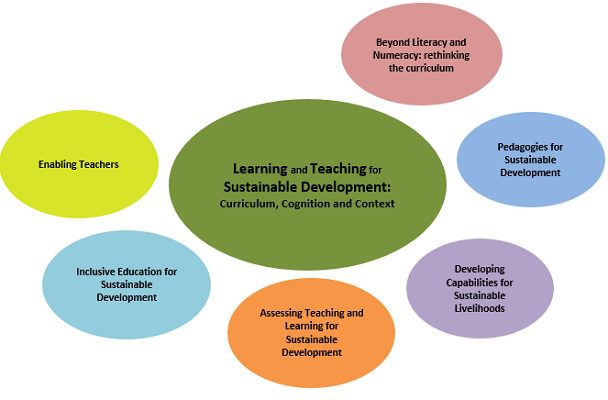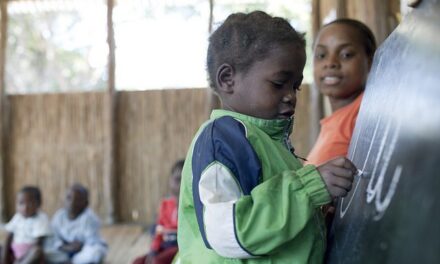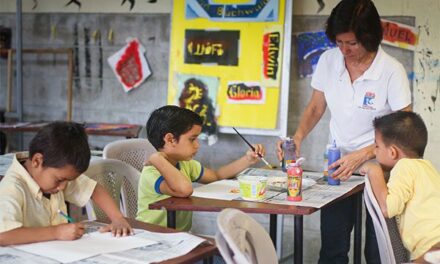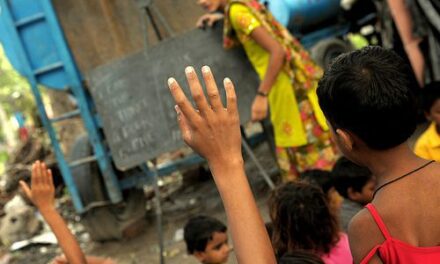This year’s UKFIET conference has a central theme of ‘Learning and Teaching for Sustainable Development: Curriculum, Cognition and Context’. Within that, there are six main sub-themes. The Convenors of each of these sub-themes outline here a summary of what you can expect from the sessions, and provide a snapshot of some of the issues being discussed. With so many interesting sessions to go to, this will help with selecting ones which are best related to your interests.
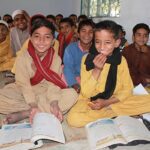
DFID/Vicki Francis
Beyond Literacy and Numeracy: rethinking the curriculum
Paul Vare, University of Gloucestershire
Clare Bentall, UCL, IoE
This sub-theme looks beyond the currently dominant concerns of promoting literacy and numeracy through the curriculum. While these are important, their primacy has led to a narrowing of the curriculum, resulting in curricula that are unlikely to prepare the next generation for a world of unforeseen challenges and rapid change. The papers, quick-fire talks and symposium in this sub-theme offer a range of responses to this phenomenon. They tackle questions about how to design curricula for specific, challenging contexts, such as those in conflict, and how to respond to issues of terrorism, environmental concerns, and political forces. They consider political dimensions including questions about who has a say in curriculum design.
Contributions also discuss the skills and competences that learners need to acquire for life in an increasingly globalised world as well as how to embed cross-cutting themes, such as sustainability, within the curriculum. Presentations range from evidence from specific community focused initiatives to wider discussions on national curricula from a variety of countries. This wide-ranging look at how to move beyond literacy and numeracy brings into focus the needs of learners in specific settings to engage with education that is both relevant to their context and which prepares them for engagement in the wider world.
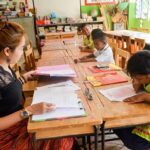
thiraphonthongaram / Shutterstock, Inc.
Unknown children in Academic Activities day at Elementary School. Chumchon watbandong school, Phitsanulok Thailand
Pedagogies for Sustainable Development
Angeline Barrett, University of Bristol
James Lawrie, Save the Children
Julia Paulson, University of Bristol
This sub-theme examines pedagogical issues affecting the quality of teaching and learning in a variety of contexts. Presentations explore the relationship dynamics of educators and their environments, highlighting tensions and trade-offs across a broad range of topics from curriculum content to technology in teacher professional development.
Presentations referencing Pakistan, Tanzania, Rwanda and Ghana will explore issues around language of instruction, honing in on the ideological and practical challenges of language policy implementation in multi-lingual settings and exploring tensions between language and pedagogy.
The interplay between pedagogy and curriculum and teachers’ roles in fostering socially cohesive, peaceful societies also features prominently. Presentations will explore teacher agency, peace education, history and citizenship, higher education, pedagogies for peace, and the challenge of meeting the SDG targets in conflict-affected settings. Issues in elite Indian schools, the education experience of British Muslim children, and education in Cuba are also explored.
Innovative pedagogical tools, including digital approaches, will be shared through a variety of presentations and quick-fire talks which reference work in Ethiopia, Jamaica and South Sudan. The use of e-readers, mobile phones and mini-printers, a new foundational teacher-development course, and the tensions between digital learning and more traditional practice will be discussed.
The challenge of educating children who have been or are denied a decent primary education is the focus of a symposia on Accelerated Education. The challenge is further investigated through presentations on holistic models of education, the empowerment of older children, social pedagogy and the relationship between formal and informal learning. We invite you to join the sessions for lively provocative debate on the implications of the SDGs for pedagogy.
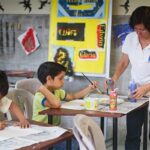
Guayaquil, Ecuador. Photo by De Visu
Enabling Teachers
Nalini Boodhoo, University of East Anglia
Sharon Tao, Cambridge Education
This sub-theme encompasses a broad understanding of ‘sustainable development’ that not only pertains to the SDGs, but also reflects on sustainable policy, practice and professional development for teachers.
‘Enabling Teachers’ includes contributions from researchers and practitioners who consider the meaning and complexities of sustainability in relation to: pre- and in-service teacher education, curricula and competency standards for teachers, teacher recruitment and retention, teacher motivation, teacher well-being, and the effects of broader systems, policies and funding mechanisms surrounding teachers.
This year’s presentations will offer insights from a variety of geographical contexts, such as Cambodia, Vietnam, India, Pakistan, Chile, Guatemala, Guinea-Bissau, South Africa, Tanzania, Ghana and Nigeria amongst others; and will address specific issues including:
- Sustaining teacher education programmes after funding, material resources and training are finished
- Curriculum support for teachers to deliver Education for Sustainable Development
- The lived experiences of teachers in meeting the challenges and pressures of bringing about sustainable change
- The factors and systems that facilitate teachers’ sustained application of new knowledge, skills and values in their particular learning spaces
- How teachers can be sustainably motivated to improve student learning outcomes and their own professional development
- The role of policy makers, school leaders, teacher educators, donors and researchers in supporting the sustainability of teachers’ professional and human development.
We are confident that this year’s presentations will prompt meaningful reflection and action regarding sustainability for, with and through teachers.
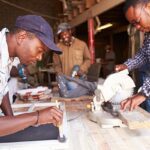 Developing capabilities for sustainable livelihoods
Developing capabilities for sustainable livelihoods
Rebecca Hughes, British Council
Bronwen Magrath, University of Nottingham
The presentations in this sub-theme explore, from different angles, the theme of learning for sustainable livelihoods. We will have a chance to hear research and researchers from across the globe discuss the knowledge, attitudes and skills adults and youth are cultivating in response to shifting educational and employment contexts. We will also hear how education systems and policies are responding to these shifting landscapes and how global goals and norms are articulated at national and local levels.
The papers in the ‘Capabilities, aspirations and contexts: perspectives from learners’ panel all use the voices of youth as a starting point to understanding the journey from school to work, and the skills and values developed along the way. These issues are explored more broadly in two panels that explore global and national policy priorities for education and development. The first examines the expansion of higher education and TVET in Chile, Afghanistan and Ghana and questions the equity implications of this trend; and the second, through a mix of paper and quick-fire presentations examines the impact the Sustainable Development Goal agenda is having on policies and practices in diverse settings.
A third session, Informal and lifelong learning for sustainable development, shifts gears somewhat to explore the learning that takes place outside of education institutions, including through mentorship, volunteering, and Freirean-inspired literacy programs. Complementing this is a session returning us to the voices of learners – this time through ethnographic research with children and youth who have been displaced by the Syrian conflict. The papers in this session will explore the lessons learned about learning for peace, stability and well-being. The sub-theme is completed with two sessions which interrogate the education-employment interface; one looks at a number of different iterations of workplace learning in a wide variety of settings, from apprenticeship programmes in Nigeria to traditional boat-building in Grenada. The final session explores skills development for youth who are out-of-school and living in challenging contexts.
Assessing teaching and learning for sustainable development
Aaron Benavot, University Albany-SUNY
Rhiannon Moore, Young Lives, University of Oxford
Measures of student learning, based on the growing number of international, regional and national assessments, are now a central part of educational monitoring, as policy priorities have shifted from a focus on universal access to education to one based on access and learning.
Current measures mainly focus on proficiencies in foundational skills, such as literacy and numeracy, and whilst attention is sometimes devoted to other subjects and learning outcomes, this is notably less frequent. Yet in our fast changing and unpredictable world, pronounced economic, political and environmental challenges underscore the need for a broader view of teaching and learning. Such a view would not only examine the provision and distribution of qualified teachers and the quality of their classroom teaching but also their impact on a range of learning outcomes, particularly in relation to sustainable development.
In assessing teaching and learning for sustainable development, many questions have emerged. Papers in this theme tackle several highly relevant issues – for example, the need for a global approach to monitoring learning, the challenges of measuring learning equitably across and within countries, the use of language in assessment, the importance of assessment in shaping education policy and the use of assessment results in support of good quality teaching and improved learning. Some sessions focus on one or two single countries whilst others span multiple countries and regions.
The SDGs provide a common thread drawing together the papers in this sub-theme. Progress in sustainable development requires learning equity in effective settings, and the role of measurement and assessment in these processes are crucial. To move towards equitable learning, we need greater awareness of the factors that impact the achievements of all learners, in and out of the classroom.
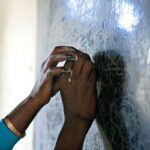
11 November 2010. El Fasher: Supervisor Radia Ibrahim Hamid and the translator to the sign language, Abdelatif Adam Ibrahim, are teaching mathematics to the students at the North Darfur Association for the Disabled, in El Fasher. Photo by Albert Gonzalez Farran / UNAMID
Inclusive Education for Sustainable Development
Susy Ndaruhutse, Education Development Trust
Amy Parker, Relief International
We have been really impressed with the volume and the diversity of papers and symposia that have been submitted for the inclusive teaching and learning sub-theme. The programme covers the full breadth of research, policy and practice, offering delegates the opportunity to engage in new and developing discussions on how to ensure no one is left behind.
Within the sub-theme, we have papers focussed on a particular education sub-sector such as early childhood education or higher education, as well as papers and symposia on broader topics such as the scaling up of inclusive education approaches; using education technology to reach displaced communities; the links between gender, sexuality and violence; and how textbook content can lead to exclusion or inclusion of marginalised learners.
We have endeavoured to structure the sub-theme programme in such a way so that those interested in following a particular topic which has more than one session (e.g. disability, early childhood development, learning, etc.) can follow this topic through in largely consecutive sessions. Two topics have attracted a large number of papers and symposia – these include (i) gender and girls’ education, and (ii) education in crisis and conflict-affected contexts. For these two topics, we have five sessions that start with the more conceptual and theoretical and then move into a more practitioner perspective.
With lots of choice on offer across all the sub-themes, we welcome delegates who want to follow through the sessions on the inclusion sub-theme throughout the conference as well as those who want to dip in for a particular topic or session of interest.

